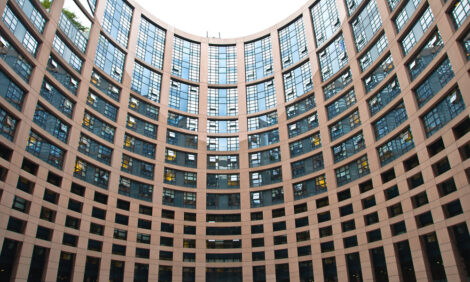



EU Supports Zambian Agriculture, Renewable Energy
EU and ZAMBIA - The EU has signed a new agreement to boost agriculture and promote access to renewable energy in Zambia.European Commissioner for Development, Andris Piebalgs, is set to sign a new agreement to support smallholder farmers and promote agricultural conservation in Zambia, during his first ever visit to the country (18-20 June). Thanks to this partnership, which will be signed with the UN’s Food and Agriculture organisation (FAO), local farmers will benefit from an average increase of 40 per cent in household revenue. This new initiative will receive €11.1 million in EU funding.
The Commissioner will also discuss future cooperation between the EU and Zambia on renewable energy, as well as a possible cooperation agreement which will promote access to sustainable energy in the country. As a member of the 'UN High Level Group on Sustainable Energy for All', Commissioner Piebalgs will attend an energy seminar (Seminar on Energy future of Zambia: Sustainable Energy Sources and Hydro Power Potential), where he will express the strong support the EU intends to provide to Zambia’s energy sector.
Commissioner Piebalgs said: "In recent years, Zambia has made huge progress in development; particularly in mining and agriculture. Yet despite its remarkable economic growth, Zambia is one of the most unequal countries in the world. I hope that today’s agreements will help to make sure that from now on, the country’s growth benefits the whole population; not just the few.”
As part of the visit, the following new agreements will also be signed:
- A project on Non-State Actors (NGOs), to provide capacity building support (for example setting up training in project management; helping local NGOs to share expertise and experience with relevant government institutions; as well as promoting the importance of gender awareness) to NGOs in Zambia. The programme has a specific focus on organisations active in promoting access to justice and the media. The project will receive €5 million.
- Three contracts for the rehabilitation of the great East Road (one of the main roads in Zambia, and a link between Malawi and Mozambique) for a total amount of €118 million. As a vast land-locked country, Zambia's trade with neighbouring countries suffers from high transport costs and long, costly border crossing procedures. Investment in its roads is therefore vital.
During the visit, Commissioner Piebalgs will visit the following ongoing EU-funded projects:
- a health centre in Kafue which will benefit from EU support, as part of the Millennium Development Goals (MDG) Initiative programme.
- a commercial farm in Mazabuka
- a Conservation Agriculture project in Mazabuka financed by the EU and implemented by the UN’s Food and Agriculture Organisation (FAO)
The Commissioner will also meet with a group of representatives of EU businesses that are visiting Zambia with a view to investing there; in order to discuss the possible opportunities and challenges.
EU Development Cooperation with Zambia
The EU is providing €489.7 million between 2008 and 2013 to Zambia. The main areas of cooperation include agriculture (conservation agriculture, nutrition and private sector competitiveness), governance (democratic checks and balances, justice, economic governance) and energy (including improving access to clean and sustainable energy).
In addition, through the Africa Infrastructure Trust Fund, the EU provides grant support of interest rate subsidies of €25 million on the European Investment Bank (EIB) loan, €13.7 million on the Agence Française de Développement (AFD) loan, and €1 million for EIB Technical Assistance to the Great East Road project.








